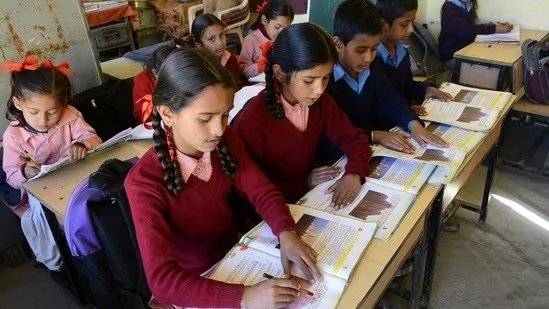Government proposes ‘one nation, one student ID’ and online school admissions to revolutionize education system
In a major step towards making education more accessible and efficient, the Union government has proposed the integration of education records of all school students into its ‘one nation, one student ID’ initiative. This move, along with the switch to online school admissions, aims to streamline the education system and bring it in line with the National Education Policy (NEP) 2020. According to an official government document, the ‘one nation, one student ID’ initiative will be implemented by 2026-27, with the goal of providing students with an Aadhaar-verified ID called Automated Permanent Academic Account Registry (APAAR). This ID will serve as a universal student identifier from pre-primary to PhD, and will also act as a gateway to students’ academic bank of credit (ABC). The document, presented by the Union Ministry of Education at the third national conference of chief secretaries, also proposes that all government and government-aided schools switch to an online admission system in the next three years. This will not only make the admission process easier and more efficient, but also reduce barriers and minimize dropouts. The integration of education records into the ‘one nation, one student ID’ initiative will not only help monitor the lifelong learning journey of students, but also build a digital repository of education records. This will make it easier for students to store and access their records, and also enable the integration of interstate student records. The document also highlights the role of Aadhaar linkage in building trust in digital records and empowering stakeholders to access diverse educational services. The ministry has already launched the ‘one nation, one student ID’ initiative in higher education institutions, covering nearly 22 million students. The proposal to extend it to schools is a step towards ensuring seamless integration between the two levels of education. To facilitate the creation of APAAR IDs, the document suggests that Anganwadi or schools can assist students during the time of admissions. The ministry can also organize workshops and training sessions for states and union territories to help them create the IDs and integrate admission portals and applications into a unified platform. The document also sets a deadline of 2026-27 for 100% integration of education records through the ID. While it is not mandatory for states to adopt this initiative, it is a step towards promoting good governance and making education more accessible.

